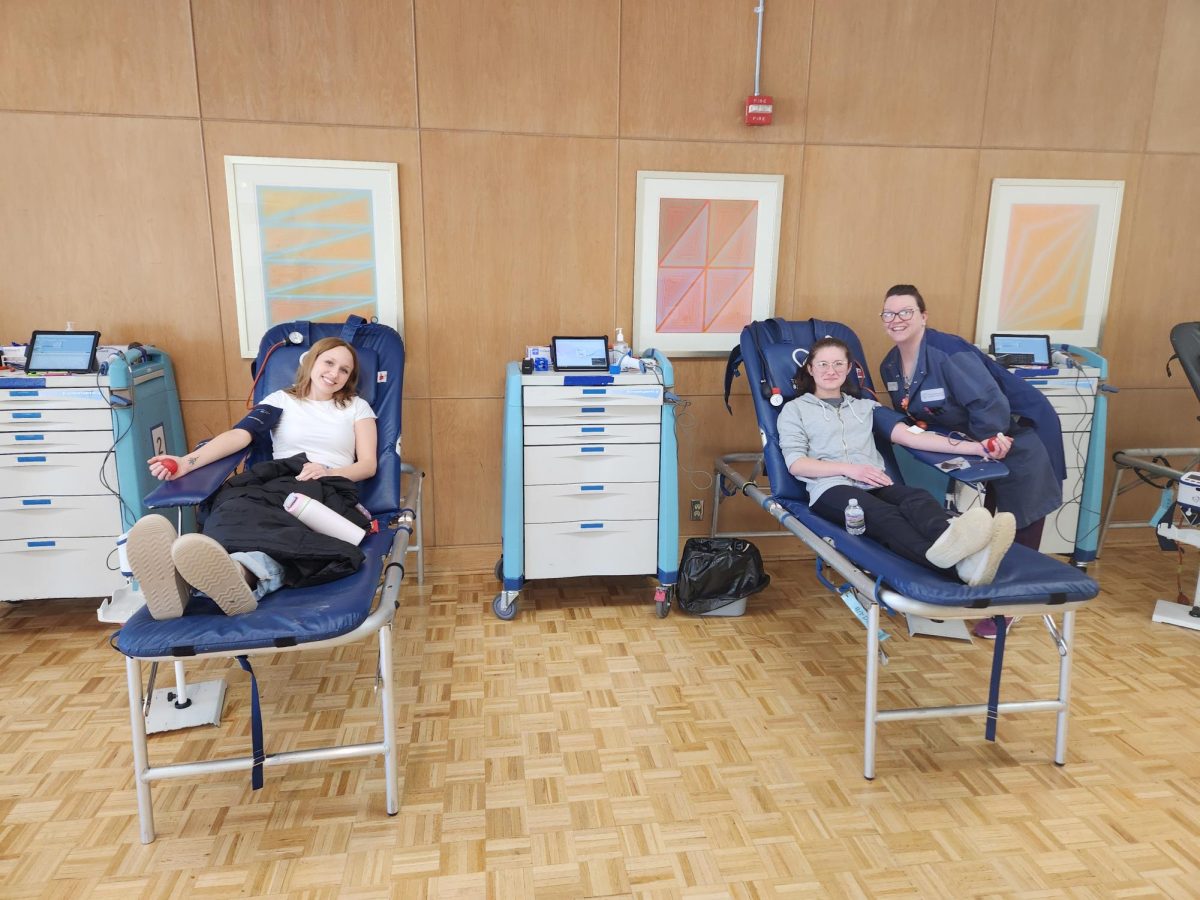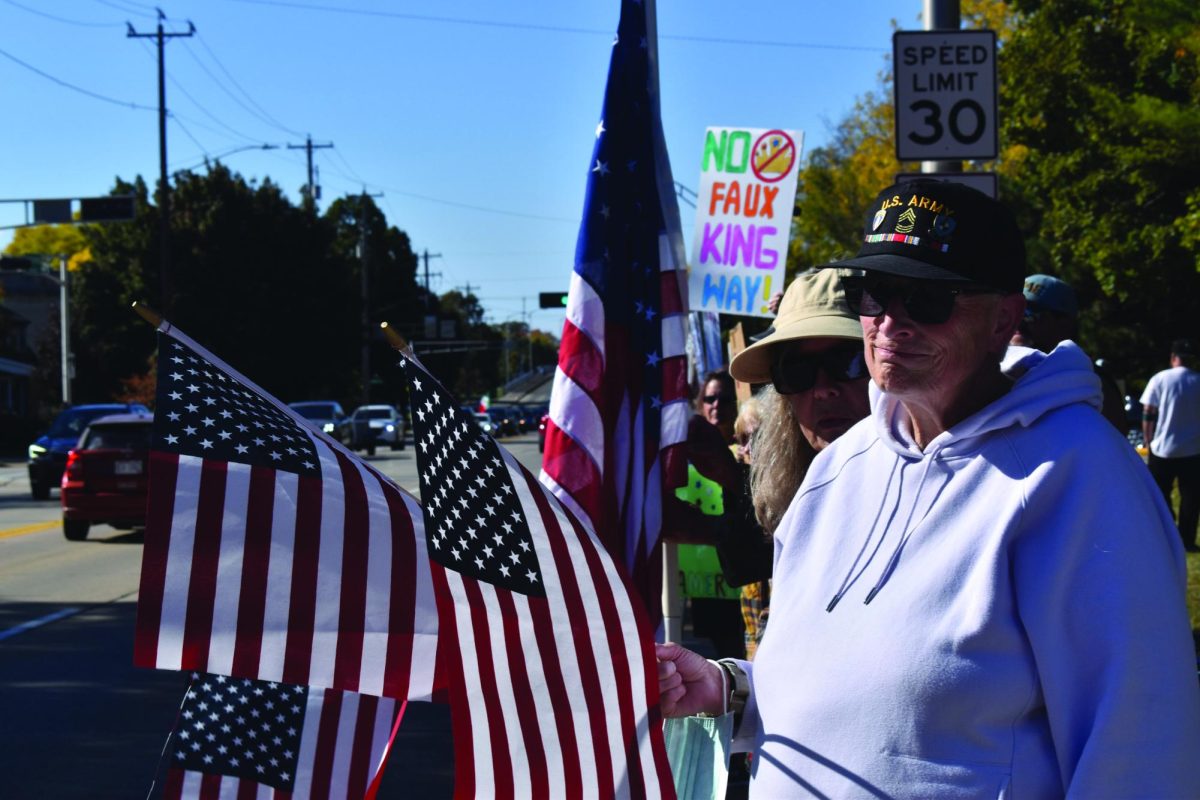UWO hosted a second blood drive this year in collaboration with the Community Blood Center, collecting 12 units on March 6 at Reeve 202.
“The blood will be used to save up to 36 lives at hospitals right in our community,” Morgan Kluth, a UWO nursing student and a blood drive coordinator for the Center for Civic Fellows and Community Engagement, said. “Blood donations are used for life-saving procedures like surgeries, trauma care, chronic illnesses and more.”
Kluth said that when recruiting students for the blood drives, about 65% of them have a reason why they are not interested in donating blood.
“It is not easy to find the students who are willing to actually sign up and donate,” Kluth said. “I am very grateful for the ones who do because they are affecting so many lives, which makes me happy and fuels my motivation.”
Rese Heuer, a nursing major, came in to have her third blood donation after not doing that for a few months. She said that she would donate more blood in the future because she can save lives by doing it.
“My brother had to receive blood transfusions when he was in the hospital,” Heuer said. “I am kind of giving it back.”
Carly Goebel, a business major, decided to donate blood for the first time after receiving an email about the blood drive on campus. She said that students who have never donated blood before should not be afraid of it.
“Passing out is only scary for like a minute, and then you are kind of over it,” Goebel said. “Nothing bad can really happen. You are surrounded by a bunch of people who are going to help you.”
Philip Carpenter, an Oshkosh native, remembers his first blood donation when he was 18 years old during his time in the army.
“I gave him [phlebotomist] a pint and got a half a day off,” he said.
Carpenter, giving his 124th blood donation through the Community Blood Center, said that he does not have a reason to do that.
“I don’t know, just do it for the hell of it,” he said. “I just got into the habit of doing it.”
Carpenter said that more people should donate blood to help others and gave advice to new blood donors.
“You want to be hydrated,” he said. “If you ain’t hydrated, you are going to be in trouble because you can get a little boozy.”
Kluth said that students who have never donated blood before should eat a good meal, which includes protein, dairy, grains, fruit and vegetables.
“I remind students to relax and trust the process,” she said. “The staff drawing the blood is such a wonderful, caring team who are so helpful to people worried about the donation process.”
Tom Duerr, UWO alumni, is an account manager for the Appleton Community Blood Center, whose job is to work with community sponsors to set up blood drives.
“The idea that someone who is a member of this community can donate blood and then someone … who needs blood can receive it … is very meaningful,” he said. “It is like helping your neighbor.”
Duerr said that after the COVID-19 pandemic, people started to donate less blood because they started to work from home.
“Having that hybrid work setting that’s kind of been prevalent in the last five years or so has definitely impacted the amount of donors we are able to reach,” he said.
Mike Lueder, director of the Center for Civic and Community Engagement, said that if a person has never donated blood before, it is the perfect time to try it.
“The last blood drive with the Community Blood Center this semester will be on May 6,” Lueder said. “The CBC staff are excellent at working with new donors and will make the experience as nice as possible.”
To find more information about upcoming blood drives at UWO, visit this web page: https://www.uwosh.edu/community-engagement/blood-drives/









